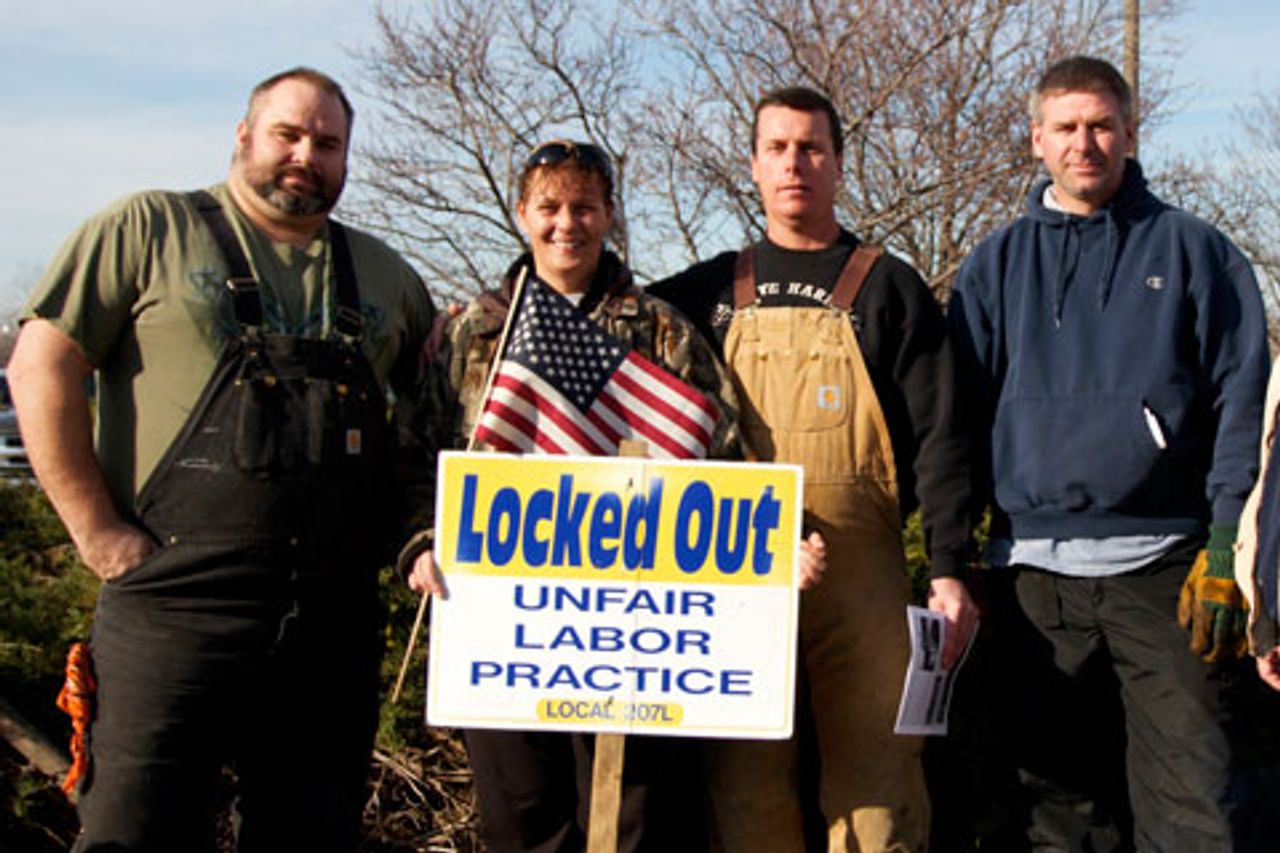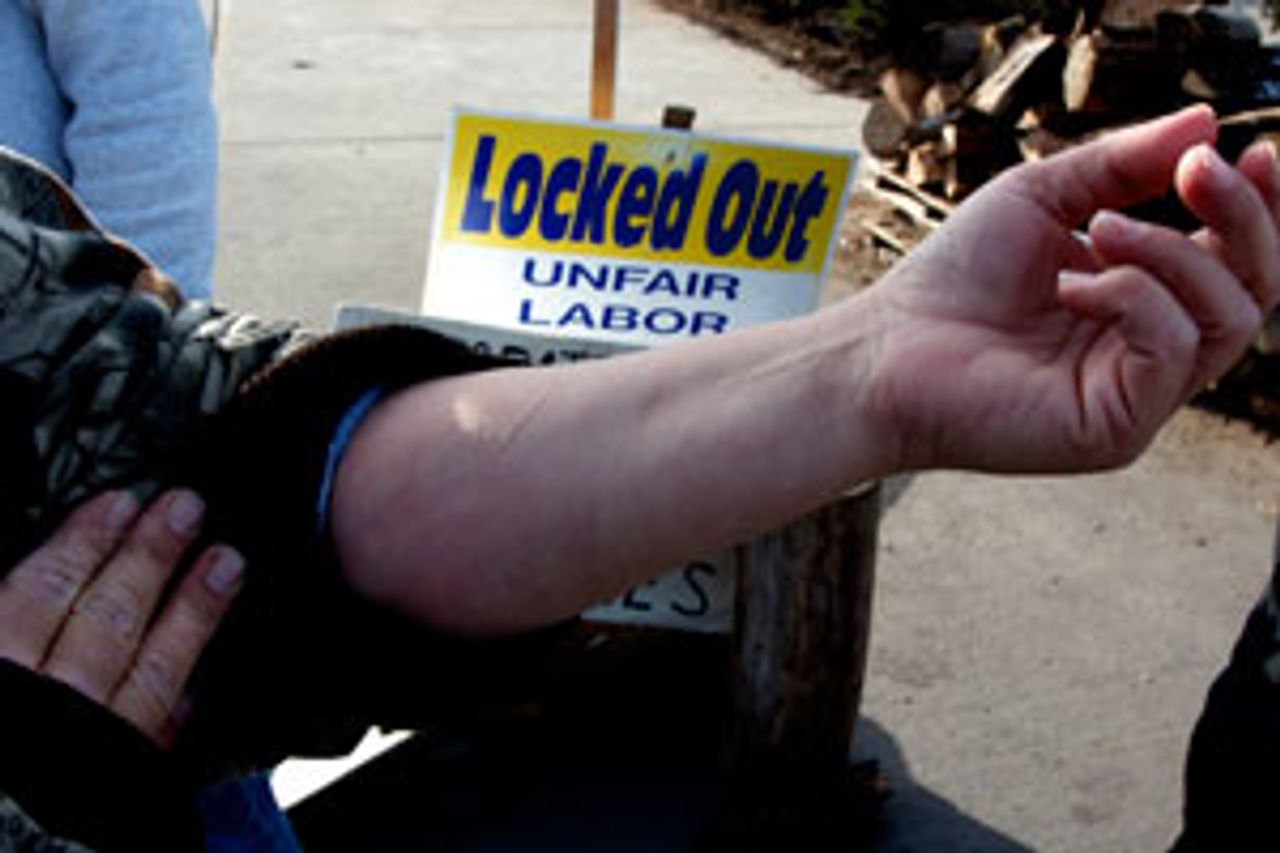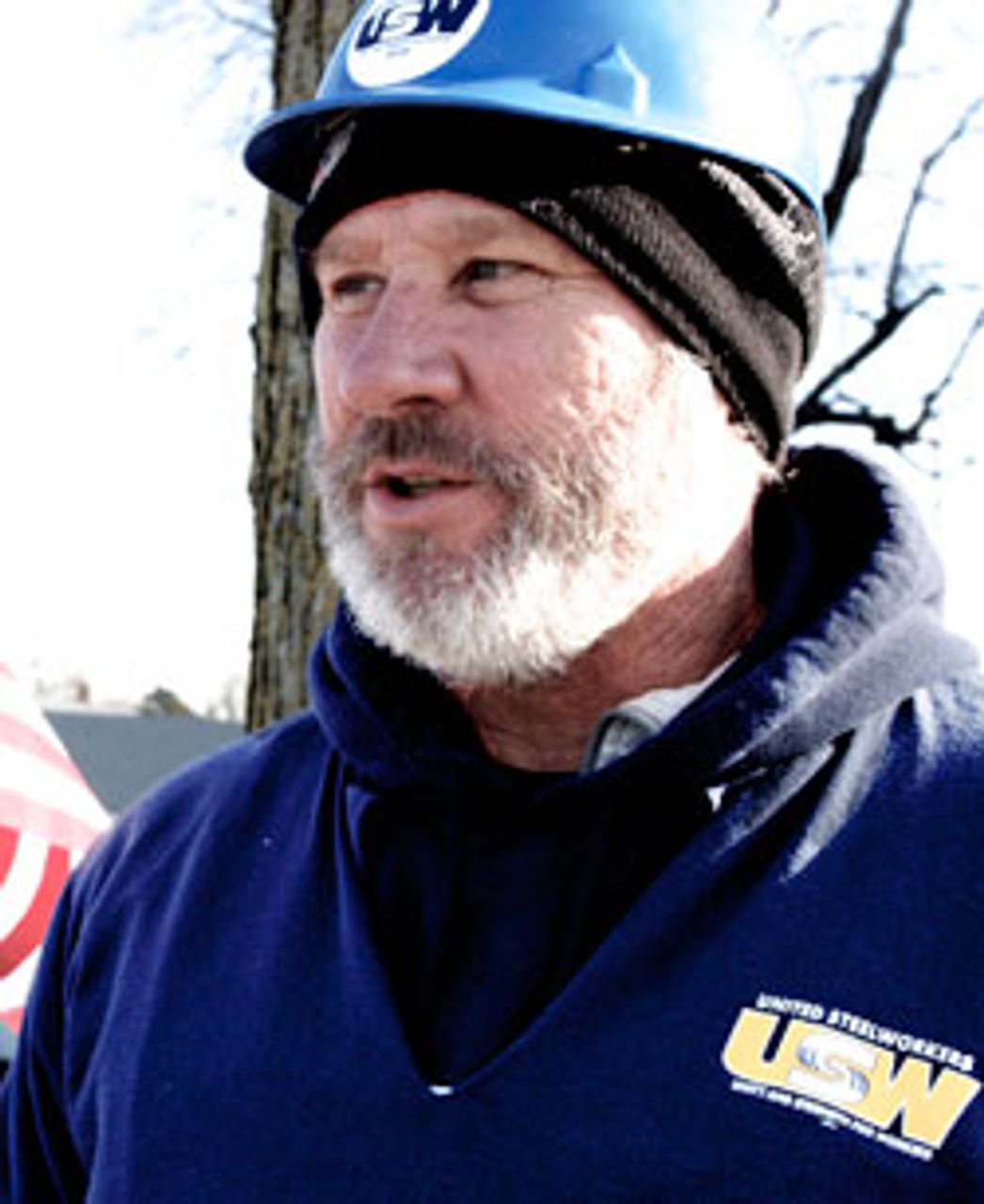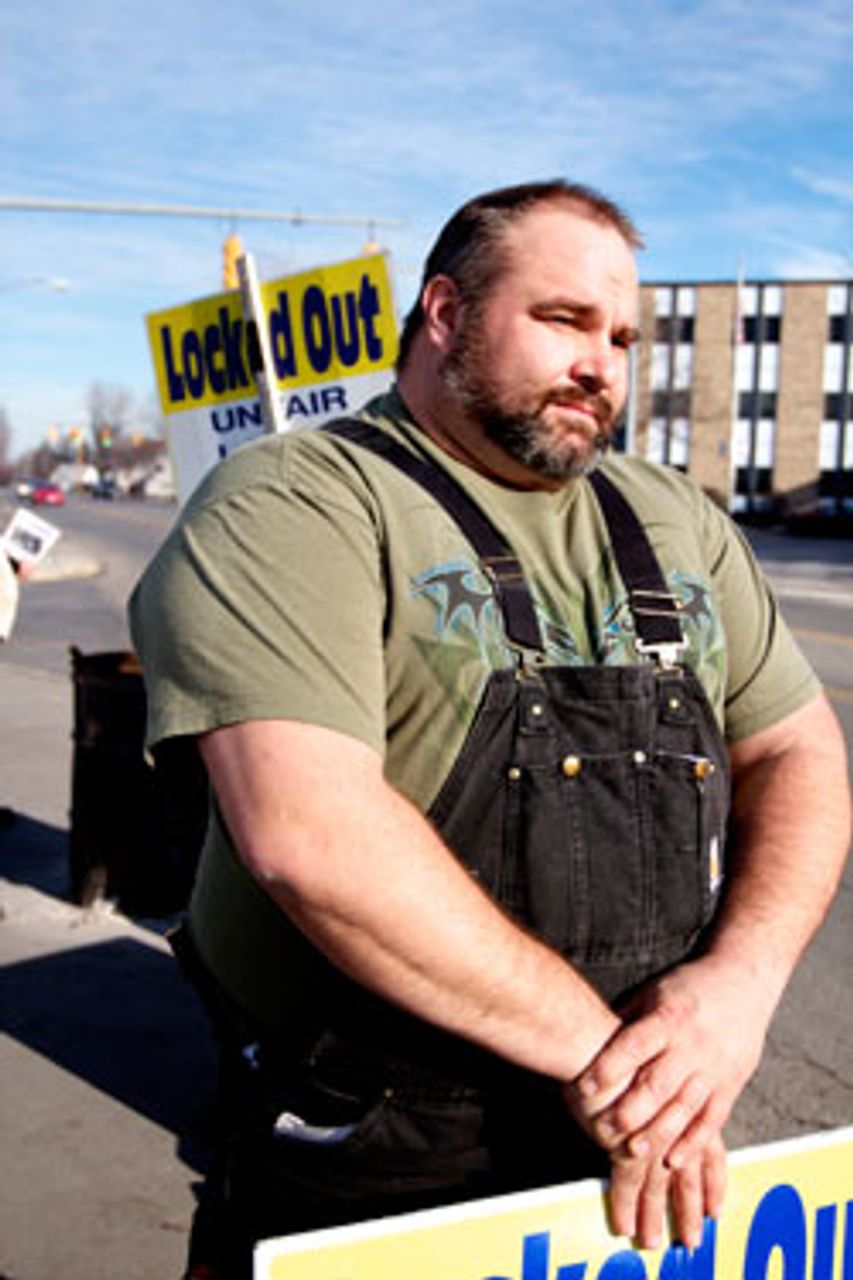The workers now fighting wage and benefit cuts at the Cooper Tire factory in Findlay, Ohio are subjected to back-breaking work, in many cases for poverty wages, under a piecework pay system.
 Jeff Holtgreven (far left) and Missy Mareches (center left)
Jeff Holtgreven (far left) and Missy Mareches (center left)“This is physical labor,” said Jeff Holtgreven, as he stood on the picket line Monday. “It’s not a matter of watching machines; we physically make these tires.”
In 12-hour shifts, workers cut, mold and press molten rubber into tires through sheer physical exertion. “I pick up 1,800 tires a day with my bare hands and put them in a press,” said Jeff.
Production work at the plant is done on a piecework system, which was largely abolished in American manufacturing through the labor struggles of the 1940s and 50s.
“I’m a single mother,” said Missy Mareches. “I build tires to make ends meet for my children. It’s hard labor. I can’t sleep at night because my arms go numb. We are so beat up just trying to make a living.
 Missy Mareches shows scars on her arm
Missy Mareches shows scars on her arm“I have cuts all over my body,” she said, rolling up her sleeves. “Most of the cuts and burns are gone now, though, because we’ve been locked out for two weeks.
“My job involves sticking my hands in 200-degree rubber, and of course that means I’m going to get burned,” she said. “We cut the rubber by hand with hot knives; this isn’t something that’s done by machines.”
Injuries are routine, and deaths are not uncommon at the plant. “Over the last few years, five guys have died in this plant from heart attacks or being dragged into the machinery,” added Jeff.
“I had a good friend who used to work at the plant, who woke up one morning completely paralyzed,” said Lori Miller, a worker with 19 years at the plant. “He was a very strong guy, whose job was to throw truck tires all day long.”
In 2010, after a newly hired worker suffered severe burns the plant was cited by the Occupational Safety and Health Administration (OSHA) for “failing to provide proper hazardous chemical protection to its workers, unnecessarily exposing them to fire and explosion hazards, and failing to provide fall protection from distances of more than 9 feet.”
Cooper tire was fined $213,500 for the violations, which included two “willful violations,” six “serious” violations, and two “repeat” violations.
“When they take 10 new-hires for a tour of the plant, eight of those guys will want to leave immediately once they see the conditions," said Don Bowman, a worker with 32 years at the plant.
But despite the physically destructive nature of the work, retirees are not provided with health insurance, and healthcare payments often take up nearly half their retirement checks. “We have people who leave the plant and can’t walk,” said Missy.
 Don Bowman
Don Bowman“The concessions wouldn’t be so bad if the work were not so physical: ok, we’ll destroy our bodies for a paycheck: but not for $13 per hour,” she added.
During the 2008 economic crisis, Cooper Tire extracted major wage and benefit concessions from the workers, which the United Steelworkers union said was necessary to keep the plant open. None of the production workers have a set wage, but the new hire rate established in 2008 amounts to about $13 per hour, workers said.
Now, after having returned to profitability, Cooper Tire is once again demanding that workers take pay and benefit cuts, but on the condition that the company be allowed to adjust the pay scale unilaterally after the contract is signed. Workers resoundingly rejected the proposal, and have been locked out of the plant since November 28.
The reduction of piece rates would inevitably result in even more speedup and injuries, as workers race to save their houses and feed their families through ever-greater exertions.
“Management is setting out to speed up the machines, to get more tires for less money. This will no doubt lead to more injuries,” said Lori.
If workers do not meet minimum quotas, they are bumped down to a lower wage rate. “There is one woman here is almost sixty years old and isn’t as fast as the rest of us,” said Missy. "She only barely makes her quotas. If the company gets what it wants, they’ll be able to raise her quota, and they’ll knock her down to the new-hire rate of $13.50 per hour.”
The tiered wage system is universally hated by the workers who resent doing the same work as their brothers and sisters for radically different pay. “We all chip in to make sure the new hires are treated as equally as possible. This Christmas, we’ve taken up a collection to make sure their kids get presents,” said Lori. “Cooper is going to ruin it for our kids.”
Cooper Tire also got significant handouts from state and local governments in 2008 in exchange for keeping the Ohio facility open. In Findlay, the plant gets free water and sewage, a boondoggle worth $9 million.
“All the residents had to foot the bill for the free water that the tire plant got, so in 2008, my wages went down and my water bill went up,” said Lori.
 Jeff Holtgreven
Jeff Holtgreven“We’ve worked eight hours a day, seven days a week for years,” said added. “In 2006, they came in with a new system in which they virtually eliminated overtime payments. So you can work the whole weekend through and not get any overtime. I’ll tell you, on the week that you work Friday, Saturday and Sunday it takes two days to recover physically.”
When the plant changed to the new system, workers said, they each lost about $20,000 per year.
Because of the high levels of unemployment in Ohio, many workers with advanced technical training and college degrees have taken jobs at Cooper, despite the unhealthy and difficult nature of the work. “I know a guy in the plant that is working for his Master’s degree,” said Jeff. “There are laid off school teachers in there. One guy went to Ohio State University and couldn’t find a job after college. When I hired in there was a line all the way down the block of people looking to get a job here.”
Subscribe to the IWA-RFC Newsletter
Get email updates on workers’ struggles and a global perspective from the International Workers Alliance of Rank-and-File Committees.
